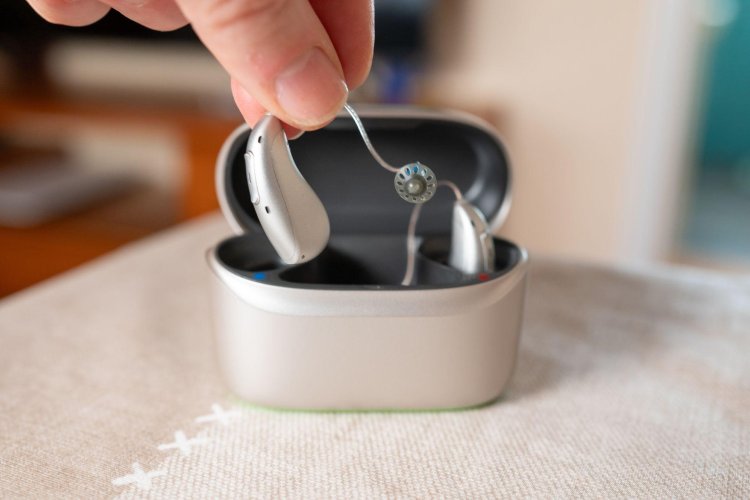Many people will hear ringing in their ears at one point throughout their lifetime. Sometimes it can be short-lived and due to loud noise exposure or pressure changes inside the ear. When the ringing is regular, your audiologist may diagnose your condition as tinnitus. But why do your tinnitus symptoms seem so much worse at night?
Why is Tinnitus Worse at Night?
The reason that the ringing may seem worse at night is not due to the fact that the ringing gets louder. Rather, it's due to the fact that there are fewer environmental noises than throughout the day. With fewer noises around you, it is easier to notice the ringing that comes with tinnitus.
Additionally, shutting your eyes can have another major impact on your perceived tinnitus. When you close your eyes to fall asleep at night, you're cutting off your body's visual stimulation. Without any visual stimulation, your hearing will take up most of your attention. Again, it's not that the ringing noise gets louder. Rather, it's the fact that you perceive it to be due to a lack of other stimuli that takes your attention away from it.
How Can Tinnitus Affect Your Sleep Hygiene?
When you're experiencing tinnitus when you're trying to rest, it can be very unsettling. Many people feel that their tinnitus gets worse the longer that they try to fall asleep. This can reduce your ability to fall asleep and get enough hours of sleep every night.
When your body doesn't get enough sleep, it can affect many other areas of your life. You may notice a decreased mental focus and ability to problem-solve. Your body may feel weaker, and you'll have less energy. Fatigue will be common throughout the day as your body isn't getting enough rest for the next day.
How to Stop Tinnitus Symptoms at Night?
Tinnitus and hearing loss can both impact your ability to get a restful night's sleep. Because of this, you might wonder how to treat your issue. The simple way to treat tinnitus that happens at night is to avoid silence. Your audiologist can provide you with options to help ease your overnight tinnitus.
One common way to treat this issue is with sound therapy. This helps to raise the ambient sound around you. It also tunes out the ringing that your tinnitus produces. If you're experiencing hearing loss alongside tinnitus, getting hearing aids can help. They help by allowing your auditory system to pick up other sounds that you aren't able to hear without them. By hearing more sounds with your new hearing aids, they will work to drown out the ringing from tinnitus.
Call Us Today
If you're experiencing tinnitus or hearing loss, then it's time to give us a call. Let our hearing care professionals assess your unique situation and treat it.






